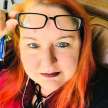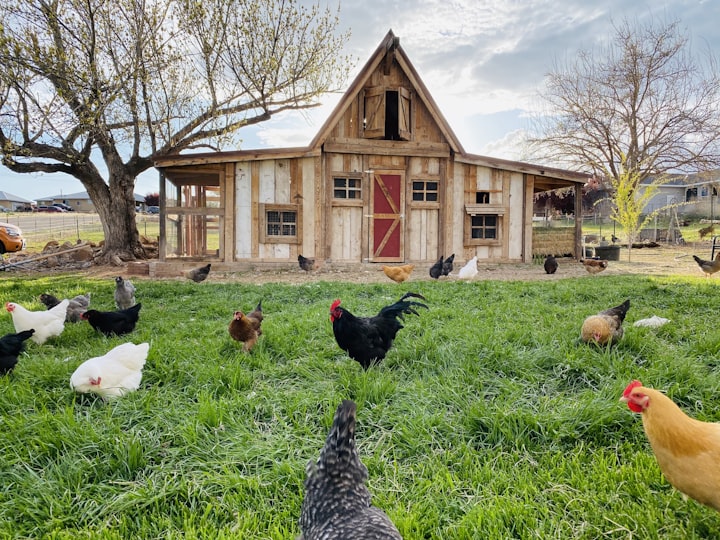How Do You Find Yourself Amid Overwhelming Loss?
I thought that the death of a parent forced me to grow up fast, but maybe I was just stunted for a long time.

I don’t remember the actual moment when we found out that our mother had cancer. We knew that she was having a biopsy, but I don’t remember if they sat us down in the living room, or where exactly we were when our lives changed forever.
At age eleven, I was the oldest of the four children in our family, and the only girl. That day in early April 1982, my brothers were 8, 4, and the youngest had just turned 3. I don’t remember being told; I just remember that it was bad. I don’t think that they told us how bad.
It was terminal.
Much later, I learned that they had told her that she had sixteen weeks to live. Can you imagine? Just 33 years old, with a successful career, a new house, a beloved husband, lots of dear friends, and four young kids – and it’s stage four cancer, you’ll be dead in four months.
I have spent many years considering how I would handle receiving such devastating news, and I don’t know that I would have managed it well. I would have probably needed the entire sixteen weeks to get past the denial. I can’t even fathom what my parents went through during those first terrible days, and the worse months and years to come. Despite the fact that it impacted my brothers and I so significantly, I’m astonished to think of how much private, personal, grief and pain that they must have kept hidden from us.
I can only imagine how terrified and lonely my mother must have been – we had recently moved to a new home in a new state, and everything had changed: jobs, schools, home, church, friends, even the woman that took care of my preschool-aged siblings was new and different. It must have been incredibly lonely going through treatments and surgeries so far away from the support of family and friends.
I can absolutely empathize with the complex and stressful circumstances that my parents were dealing with during that tumultuous time.
Which is why I can forgive them.
Forgiveness has been an important process for me, because when people are deceased, it’s easy to martyr them and turn their memories into unattainable and unrealistic ideals. As a teen and in my early twenties, I would marvel at the strength that my mother had in fighting a horrible cancer for four horrible years beyond the most optimistic expectation. Everyone said that it was pure strength of will that enabled her to extend her life, and spend that precious time with her family. I admire her incredible strength, but as I got older, and began to discover more about myself, realizing that my mother was a fallible human being helped me to relate to her better on a personal level.
Certainly, my mother’s illness, and her death a few weeks after I turned 16, was a huge influence on some of the most formative years of my life. I learned to take care of other people and prioritize their needs above my own. Though our parents worked hard to try to keep our lives as normal as possible, they simply weren’t normal, and pretending that they were was actually damaging, because there was so much fear and grief that was never processed. Because I knew how important it was to my mother that her kids continue to have a “normal life” I tried to pretend that I did. I learned to push down my anguish and put on a happy face. Eventually, I think I forgot how to feel.
In the first several weeks after my mom died, I couldn’t cry. I made phone calls, wrote thank you cards, took care of arrangements, and even sang at the funeral. Every person who expressed sympathy to me received a suitably watery smile and sympathetic nod of the head, with words about how happy we were that she was no longer suffering. I knew what I was supposed to be feeling and how I was supposed to be behaving, but inside I was as dead as my mother was.
I wasn’t “mature for my age” I was coping the best that I could, and trying to take care of my dad and brothers at the same time. While she was sick and dying, my mom confided to me many of her hopes and fears. As a result, the burden of responsibility weighed very heavy on me for years. I believe that she was trying to connect and to impart an intimacy that I could carry with me beyond her lifetime. However, the smallest wisp of a thought whispered by a dying parent can cause all manner of emotional angst for a teenager who is trying to figure out life while their parent is trying to conquer death.
One such comment happened near the end of my mother’s life. By that time, she had moved to a hospital bed downstairs in a den that dad had set up for her. One night, we were sitting together, and she lovingly shared that she was glad to have had me as her first baby. She went on to confess that she had wanted to have a boy first, but she was glad that she had had me, because I could take care of my dad and brothers after she was gone.
Oof.
With the benefit of hindsight, I can look back now, as someone who is a now dozen years older than my mother was when she passed, and forgive her for saddling me with that. There is no question that it affected who I became, and how influenced I am by the expectations of others.
For decades, I thought that service was my love language. I tried to do all the things that I “should” and everything that I “ought” – I wanted to make everyone else happy, and spent nearly 40 years putting the needs of others over myself. Very often, I did so unknowingly and joyfully – these were people that I love, after all. Caring for them was something that I was supposed to do, but I didn’t know how to affix boundaries, or to prioritize my needs. I didn’t even know what my needs were.
When I was 37, my dad died suddenly, and I was confronted with the grief of losing a parent again. I realized that I hadn’t processed a lot of feelings about my mom’s death, and losing my dad brought all that childhood trauma back to the surface.
We never had any sort of counseling to help us navigate our mom’s illness and death. There were helpful friends, kind teachers, some supportive members of our church community, but I don’t recall any of us having gone to a grief counselor or therapist. Certainly, there were financial aspects that may have contributed to that fact, but I think it just wasn’t something that my “play through the pain” generation parents ever really thought about. Again, I forgive my parents for mistakes that they made during the darkest time of their lives. I understand that they were not perfect, were in an impossible situation, and did the best that they could.
Three months after dad died, I started therapy for the first time in my life. My therapist would ask me how I was feeling, and I would tell her about some issue with the estate, or how my brother was, or that I had talked to my stepmother…and she would say: “but how are you feeling?” Time and again I would deflect. Finally, one day, she said “stop. Sit. Breathe. Sit with yourself and reflect. What do you feel?” I literally did not have the skill to identify my emotions, because they had never really mattered before. Life and death went on regardless of how I felt.
When I consider my coming-of-age story, I absolutely recognize my mom’s illness and death as the biggest influence on my adult life – no question. Yet I believe that healthy humans are constantly evolving and that we have numerous life-changing moments that impact who we become. To that end, I don’t know if our “coming of age” is one single event or period of time. I feel that I had another coming-of-age around the time that I turned 40. Turning forty was significant to me because my mom had died at 39. Forty was a new opportunity for me to be myself and stop trying to live up to the impossible perfection that was my late mother. I had started to find my feelings in therapy. I embarked on a successful career. I went through a divorce. I lived on my own for the first time in my life.
I am happy to say that I am proud of myself and the growth that I continue to make in my life. The last ten years have been a process of getting to know myself, who I am, and who I want to be. My journey of self-discovery is far from over, and I continue to enjoy the evolution.
About the Creator
Allison Rice
Finalist 2022 V+ Fiction Awards, Allison Rice is a work in progress! Author of 5 previous Top Story honors including “Immigrants Among Us” "Pandemic ABCs" and a piece about Inclusion, Alli is an avid reader, and always has a story to tell!






Comments
There are no comments for this story
Be the first to respond and start the conversation.